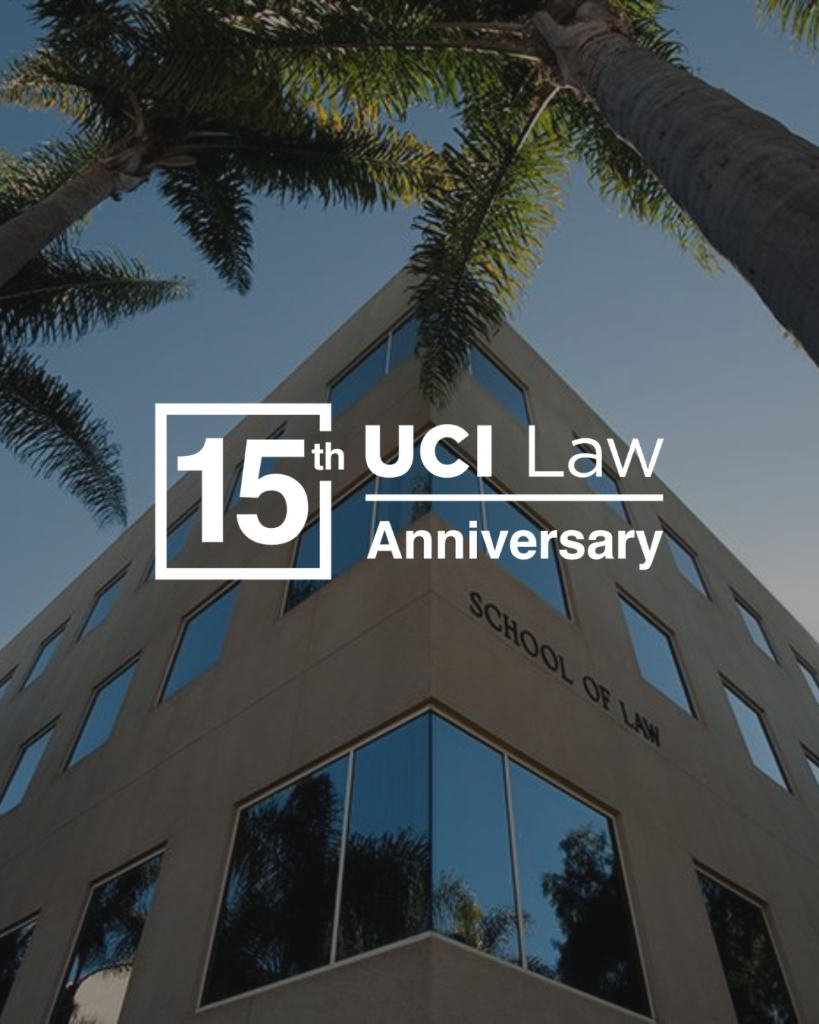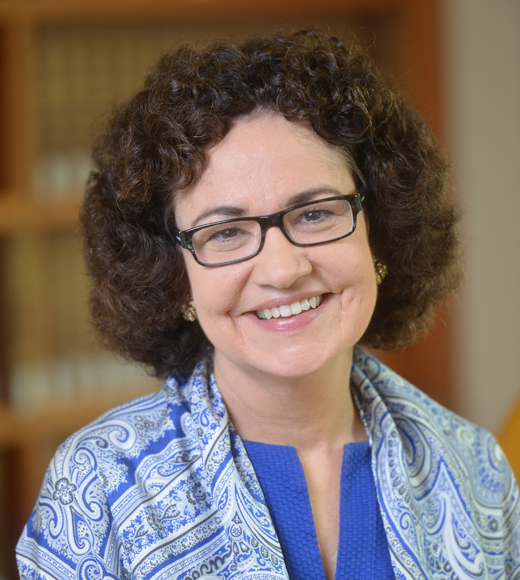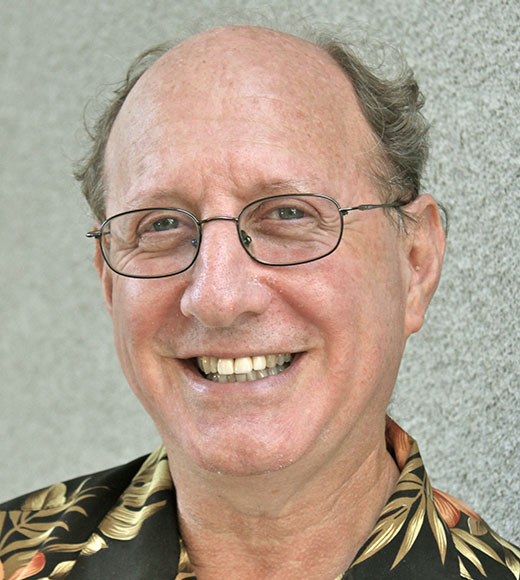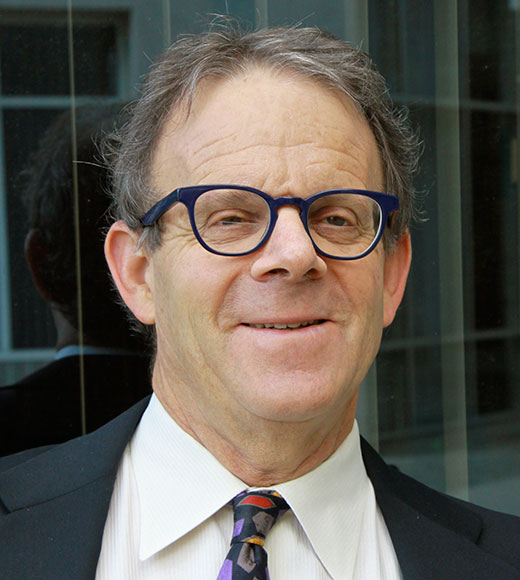
The University of California, Irvine School of Law is the culmination of several generations of revolutionary dreamers. Those not satisfied with the status quo who wanted to redefine, reimagine and reinvent legal education. As the Law School marks its 15th anniversary, our “Profiles in Excellence” Q&A series highlights members from our collaborative and interdisciplinary community — including extraordinary students, world-renowned faculty, dedicated staff and engaged alumni — and their unique experiences at UCI Law.
In our first Q&A, Distinguished Professor Emeritus of Law Rachel Moran shares her proudest accomplishment at the Law School, offers her advice to students and faculty, and looks back at UCI Law’s evolution from her perspective as a founding faculty member.
Rachel Moran
Robert Solomon
Henry Weinstein

Distinguished Professor Emeritus of Law
Professor of Law, Texas A&M University School of Law
Professor Moran’s scholarship has focused on sources of inequality and sites of opportunity encompassing education law (particularly bilingual education), civil rights, race and the law, and critical race theory. Prior to her appointment at UCI Law, Prof. Moran was the Michael J. Connell Distinguished Professor of Law and Dean Emerita at the University of California, Los Angeles School of Law, becoming the first Latina dean of a top-ranked US law school. Before that, Prof. Moran was the Robert D. and Leslie-Kay Raven Professor of Law at the University of California, Berkeley School of Law. In addition, Prof. Moran was a founding faculty member of UCI Law from July 2008 to June 2010. In Fall 2023, Professor Moran joined the faculty at Texas A&M University School of Law.
What is one of your proudest accomplishments at UCI Law?
Shortly after arriving at UCI Law, I launched the “Reimagining the Latinx Experience” book talk series with the help of my research assistant Isabella Ordorica. The series gave authors an opportunity to share findings and recommendations as well as receive thoughtful commentary from colleagues. Throughout the pandemic, we hosted the talks online without interruption, and when Isabella departed, my new research assistant Elizabeth Schatz Cordero stepped in to ensure that everything ran smoothly. I enjoyed each of the talks, learning a great deal and leaving with interesting ideas for the future. I look back and think that hosting the series helped to sustain intellectual community at a difficult time.
What advice do you have for new faculty?
At UCI Law, new faculty should benefit from colleagues who can serve as mentors and champions. The one-on-one relationships are important, but so is the general scholarly environment. There are lots of talks that will allow junior faculty to reflect on different ways to approach and write about pressing legal issues. The librarians also are tireless in their support for research and teaching. Last but certainly not least, new faculty will benefit from dedicated and motivated students. I was always impressed with everyone in my classes, and I had wonderful research assistants.
What advice do you have for students?
Your years at UCI Law will be a tremendously transformative time in your life. You will master knowledge and skills, but you will also develop relationships that support you as you begin your careers. The faculty are eager to be of assistance, so don’t be afraid to go to them when you need help. Your peers are also a wonderful resource, offering a range of perspectives on the law school experience. You should be sure to take advantage of the many extracurricular opportunities as well, including the pro bono program, moot court and other advocacy programs, and student-led initiatives. Always remember that you are building your professional identity — in every facet — from the day you begin at UCI Law.
What has been your most memorable moment as a professor?
My most memorable moment came in spring 2020 when I received notice that the law school would be closing due to the coronavirus pandemic. At the time, we thought that the shutdown would be brief, but as we all know, it went on much longer as COVID-19 surged time and again. When we got the notice, I was teaching Torts and suddenly had to shift from in-person instruction to an online class. Like most, if not all, of my colleagues, I had never taught remotely before. Along with educators throughout the country, I quickly learned the ins and outs of Zoom to be sure my students received quality instruction. What makes the time memorable is the way that people rose to the occasion. The faculty pivoted to Zoom, the staff provided support for the transition, and the students accepted the sudden change with good grace. Even as we faced a time of fear and uncertainty, we soldiered on with a sense of purpose and determination.
As UCI Law celebrates its 15th anniversary, what are your thoughts about the school’s evolution?
UCI Law is a community marked by idealism and esprit de corps. Partly, this is because of its origin story, which I witnessed as a founding faculty member. By design, the school was meant to be small, and from the outset, it was dedicated to public service. This mission attracted people who hoped to make a difference in legal education and the world. As a young school, UCI Law still conveys a sense of possibility — a belief that innovation can succeed as well as a commitment to continue experimenting. That’s one reason that I have chosen to keep teaching at Texas A&M University School of Law, another new law school with big ambitions.

Distinguished Clinical Professor of Law
Professor Solomon has been a clinical teacher since 1985, with a focus on civil litigation and community development. At UCI Law, Prof. Solomon served as Co-Director of the Community & Economic Development Clinic and Co-Chair of the UCI Center for the Study of Cannabis. Before his appointment to UCI Law, Prof. Solomon was the Director of Clinical Studies at Yale Law School. Prof. Solomon was a legal services attorney from 1972 – 1985 and had the benefit of being a generalist with an enormous amount of client contact. During that time, he came to believe that problem solving was the most important specialty in the practice of law.
What is one of your proudest accomplishments at UCI Law?
I always find “pride” questions to be difficult. My basic philosophy is that if we show up every day and do our best, good things will happen. I tried to do that. UCI is a wonderfully collaborative place, and I had the great fortune to work with extraordinarily talented people and, as a result, I think that good things did happen.
What advice do you have for new faculty?
Don’t be shy. Your colleagues want you to succeed and will go to great lengths to help you. Be willing to cross the lines that exist at many institutions, but not at UCI. Take advantage of the many workshops and ask questions. Take the opportunity to enjoy the atmosphere.
What advice do you have for students?
Law school is three grueling years, but it is also a time to make life-long friends, to learn a new discipline, and to reflect on the many ways that law interacts with the rest of the world. Do not be intimidated, do not be afraid to speak up, do not be afraid to look stupid, do not hesitate to approach faculty. Law school is an opportunity – make the most of it.

Distinguished Professor Emeritus of Lawyering Skills
Professor Weinstein is a founding faculty member of UCI Law and his areas of expertise encompass lawyering skills and media law. A seasoned journalist-turned-professor, Prof. Weinstein worked for the Los Angeles Times, New York Times, San Francisco Examiner and Wall Street Journal. He wrote more than 3,000 stories, reporting on the ground in 36 states plus the District of Columbia and Canada. He also wrote about events and issues in other countries — including Bosnia, the Congo, Iraq, Israel, Mexico, the Philippines and Switzerland — and wrote for a variety of publications, including California Lawyer, Juris Doctor, The Nation, New Times, the Saturday Review of Education and the Saturday Review of Science.
What is one of your proudest accomplishments at UCI Law?
I am proud to have been one of the founding faculty members at a new law school that rapidly earned a good reputation. I am proud that I have helped students get launched in their careers, including helping students get judicial clerkships and fellowships, as well as assisting students get a wide range of jobs. I also was particularly pleased that the law students who graduated in 2022 selected me to be the faculty speaker at their graduation ceremony.
What advice do you have for new faculty?
Get to know your students. You will learn from them. Let your students know that they matter. Engage them in conversations that go beyond the subject matter of your class. Speak clearly and accessibly. One sign of true intelligence is a person’s ability to make a complex topic understandable. I spent 40 years as a newspaper reporter, including a lot of time in courtrooms, ranging from small claims court to the U.S. Supreme Court. I never heard a lawyer or judge use the terms “ex ante” or “ex post.” Nor did I ever see either of those terms in the hundreds of Supreme Court briefs that I have read.
What advice do you have for students?
Work steadily. Learn how to accept and benefit from constructive criticism. Stay open to changing your mind, be it the merits of a particular court decision, a comment made by another student or your career path. Don’t ever think you’re the only person in the room who is confused. Don’t let anyone persuade you that “thinking like a lawyer” simply means being coldly analytical, without regard to whether the outcome of a case is fair. Some of the most compassionate lawyers are very analytic; they must be because they are working on difficult cases. When you get frustrated, take a pause, and remember why you came here and all the good you can do as a lawyer. Stay close to your family and friends. Go to the gym. Take walks on the beach.
What has been your most memorable moment as a professor?
Fortunately, there are many. But if I had to pick one it came on the day a recent graduate of the school asked me to officiate at her wedding, saying she wanted the celebrant to be someone “who inspired me.”
